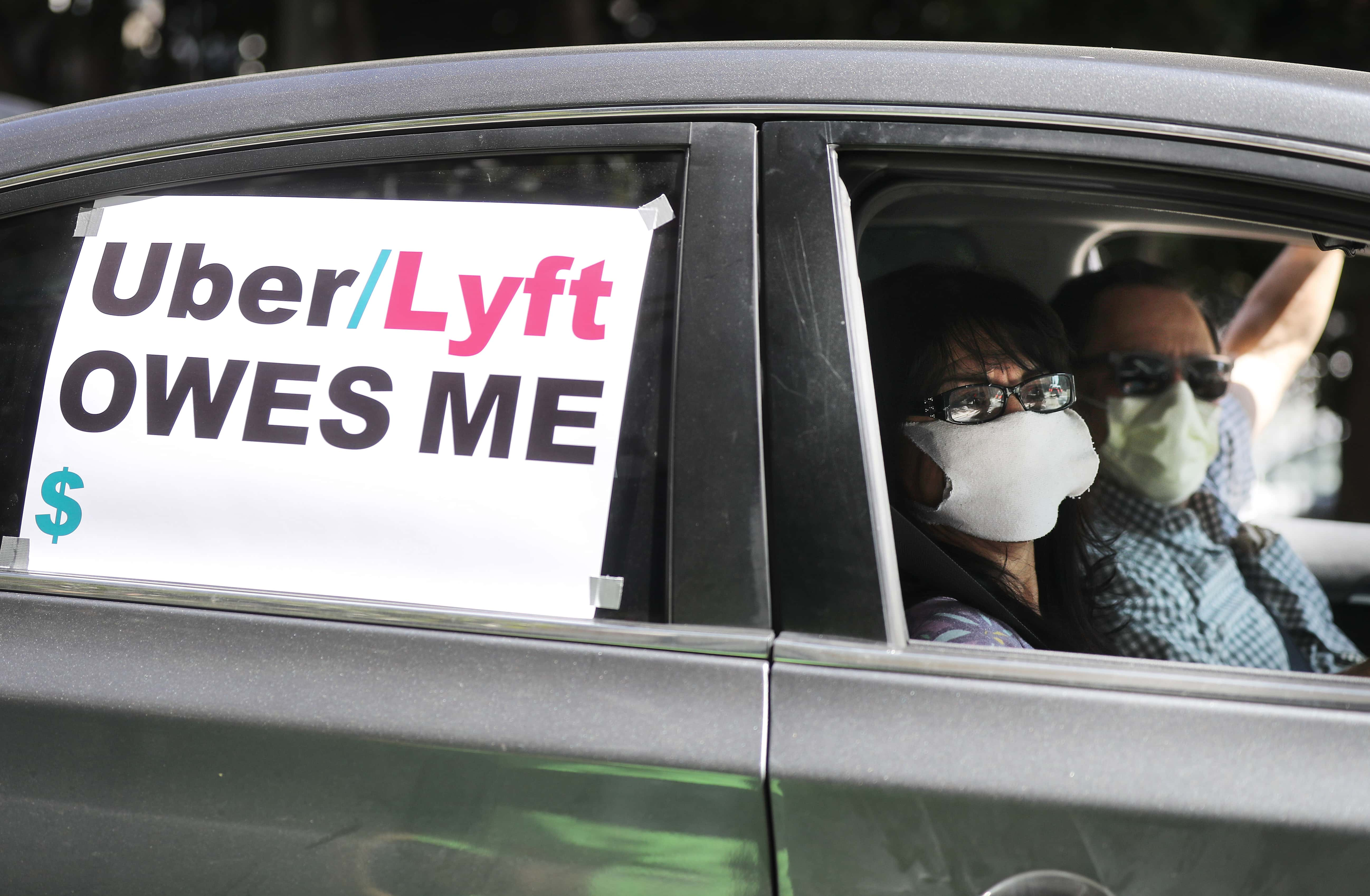What is Prop 22? CA judge rules measure unconstitutional in big win for Uber, Lyft drivers

In a big win for gig workers, a judge in Alameda County has ruled that California's controversial Prop 22 is unconstitutional. Superior Court Judge Frank Roesch ruled against the voter-approved measure on August 20 as part of a lawsuit brought by gig worker drivers and unions, marking a major blow for gig companies like Uber, Lyft, DoorDash, and InstaCart. The companies will have the option to appeal, which they are expected to do after shelling out a record $205.7m to back Prop. 22.
The battle in California is symbolic of a larger battle nationwide, between employers and workers. In April 2021, we reported on the fake Twitter account Darla at GYR1, which was used to promote Amazon as an employee-friendly company. The month before, the company found itself in the middle of a major controversy, with claims employees were forced to pee in bottles. Labor issues have been exacerbated by the pandemic, as we reported back in 2020. We found that while women are on the frontline, their welfare tends to be ignored.
READ MORE
Uber to ban passengers if drivers give them bad ratings as company updates guidelines
California became one of the first states to tackle the gig economy, with AB-5 signed into law in 2018. Gig companies managed to successfully lobby for an exemption via Prop 22, which didn't go down too well with employees. It's a complex story, and to understand how we got here, you need to understand what Prop 22 and AB-5 are.

What is Prop 22?
Prop 22 emerged from AB-5, so let's take a look at that first. Signed into law in 2018, AB-5 basically states that all wage-earning workers must be classified as employees. It created a 3-part test to see if a worker would be classified as an employee and therefore eligible for employee rights like healthcare, minimum wage, and sick leave. Under AB-5, gig workers like those who work as drivers for Uber, Lyft, and DoorDash would also have been classified employees, meaning the companies would be forced to provide these rights to them.
Not wanting to do so, the companies lobbied for a ballot initiative called Prop 22. The initiative would grant an exemption from AB-5 to these companies since their workers would be classified as "independent contractors" rather than employees. If passed, Prop 22 would exclude gig workers from state-mandated employee benefits, in favor of smaller benefits like health insurance stipend, pay for medical costs for injuries on the job, and promises of some form of minimum wage.
Essentially, Prop 22 emerged as gig companies found that supporting employee benefits would drastically raise the costs of their service, which would have to be passed on to the consumer. In August 2020, Uber and Lyft even threatened to close services in the state if forced to comply with AB-5. They then began to back Prop. 22, which was put on the ballot in November 2020. The companies poured over $200m to back the measure, making it the most expensive ballot measure in California history.
Is it unconstitutional?
Prop 22 was passed in 2020 with 58.63% of Californians backing the measure, leading to a lawsuit by the Service Employees International Union (SEIU) in January 2021. That case was being heard in Alameda County when the judge ruled it unconstitutional. Judge Roesch said it violated the state's constitution, and that it would limit "the power of a future legislature" to rule on gig workers. "If the people wish to use their initiative power to restrict or qualify a ‘plenary’ and ‘unlimited’ power granted to the legislature, they must first do so by initiative constitutional amendment, not by initiative statute," he wrote.
The ruling is mostly technical, meaning a higher court could see it differently and strike it down. That's likely to be the case, with the companies almost certainly expected to appeal. "This ruling ignores the will of the overwhelming majority of California voters and defies both logic and the law," Uber's spokesperson Noah Edwardsen told Bloomberg Law. The companies haven't yet announced a formal legal challenge, but that could be made in the days to come.
The ruling doesn't mean Prop. 22 will no longer be in effect, but it sets up a major constitutional battle over the coming months and possibly years. It could also set a precedent for federal laws on gig worker rights. While a similar bill is yet to be presented in the US House or Senate, Congress members like Bernie Sanders and Barbara Lee have long rallied against Prop 22.










